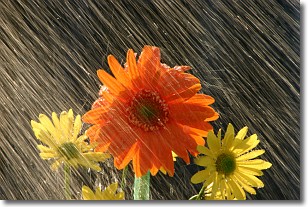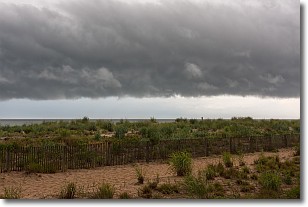Weather Alert in Ohio
Severe Thunderstorm Warning issued April 29 at 3:44PM EDT until April 29 at 4:30PM EDT by NWS Pittsburgh PA
AREAS AFFECTED: Belmont, OH; Carroll, OH; Coshocton, OH; Guernsey, OH; Harrison, OH; Muskingum, OH; Tuscarawas, OH
DESCRIPTION: SVRPBZ The National Weather Service in Pittsburgh has issued a * Severe Thunderstorm Warning for... Harrison County in east central Ohio... Guernsey County in east central Ohio... Eastern Coshocton County in east central Ohio... Eastern Muskingum County in east central Ohio... Western Carroll County in east central Ohio... Northwestern Belmont County in east central Ohio... Tuscarawas County in east central Ohio... * Until 430 PM EDT. * At 343 PM EDT, severe thunderstorms were located along a line extending from near Berlin to 9 miles south of Coshocton to 7 miles east of South Zanesville, moving east at 55 mph. THESE ARE DESTRUCTIVE STORMS FOR Cambridge and New Philadelphia. HAZARD...80 mph wind gusts. SOURCE...Radar indicated. IMPACT...Extensive tree damage and widespread power outages. Mobile homes will be heavily damaged. Expect considerable damage to roofs, windows and vehicles. * Locations impacted include... New Philadelphia, Dover, Cambridge, Uhrichsville, Barnesville, Carrollton, Freeport, Newcomerstown, Minerva, Dennison, Strasburg, New Concord, Byesville, Sugarcreek, Gnadenhutten, Antrim, Malvern, Tuscarawas, Bolivar, and Flushing. This includes the following highways... Interstate 70 in Ohio between mile markers 168 and 206. Interstate 77 in Ohio between mile markers 37 and 95.
INSTRUCTION: For your protection move to an interior room on the lowest floor of a building. Please report severe weather by calling 412-262-1988, posting to the NWS Pittsburgh Facebook page, or using X @NWSPITTSBURGH.
Want more detail? Get the Complete 7 Day and Night Detailed Forecast!
Current U.S. National Radar--Current
The Current National Weather Radar is shown below with a UTC Time (subtract 5 hours from UTC to get Eastern Time).

National Weather Forecast--Current
The Current National Weather Forecast and National Weather Map are shown below.

National Weather Forecast for Tomorrow
Tomorrow National Weather Forecast and Tomorrow National Weather Map are show below.

North America Water Vapor (Moisture)
This map shows recent moisture content over North America. Bright and colored areas show high moisture (ie, clouds); brown indicates very little moisture present; black indicates no moisture.

Weather Topic: What is Precipitation?
Home - Education - Precipitation - Precipitation
 Next Topic: Rain
Next Topic: Rain
Precipitation can refer to many different forms of water that
may fall from clouds. Precipitation occurs after a cloud has become saturated to
the point where its water particles are more dense than the air below the cloud.
In most cases, precipitation will reach the ground, but it is not uncommon for
precipitation to evaporate before it reaches the earth's surface.
When precipitation evaporates before it contacts the ground it is called Virga.
Graupel, hail, sleet, rain, drizzle, and snow are forms of precipitation, but fog
and mist are not considered precipitation because the water vapor which
constitutes them isn't dense enough to fall to the ground.
Next Topic: Rain
Weather Topic: What are Shelf Clouds?
Home - Education - Cloud Types - Shelf Clouds
 Next Topic: Sleet
Next Topic: Sleet
A shelf cloud is similar to a wall cloud, but forms at the front
of a storm cloud, instead of at the rear, where wall clouds form.
A shelf cloud is caused by a series of events set into motion by the advancing
storm; first, cool air settles along the ground where precipitation has just fallen.
As the cool air is brought in, the warmer air is displaced, and rises above it,
because it is less dense. When the warmer air reaches the bottom of the storm cloud,
it begins to cool again, and the resulting condensation is a visible shelf cloud.
Next Topic: Sleet
Current conditions powered by WeatherAPI.com




